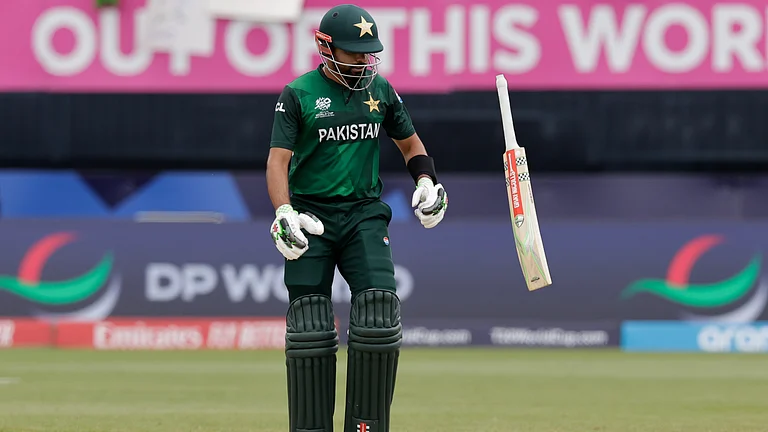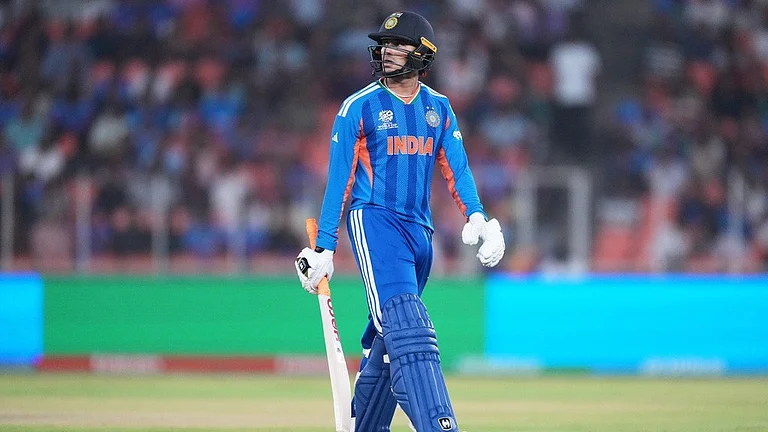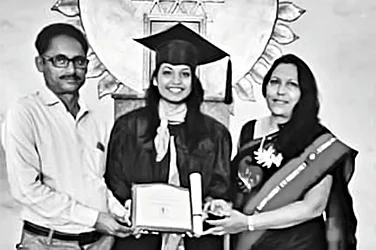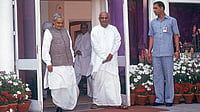- It will cover 1.18 crore households across the state
- Private-sector employees are also in its ambit. Many corporates are reluctant to part with such information.
- The survey has a budget of Rs 21.5 crore from the Centre. The state government has chipped in with Rs 2 crore and has promised an additional Rs 17.5 crore.
- The census will cover 64 parameters
- Many politicians are wary that the survey may throw up figures not conducive to their caste-based politics.
***
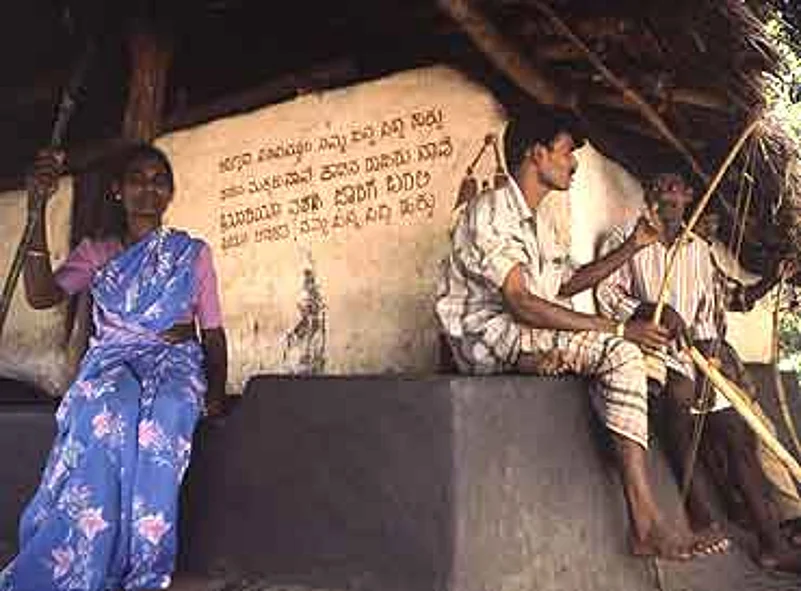
Rural areas like Nagarhole will also be in the ambit
Dr C.S. Dwarakanath, an eminent lawyer and KSCBC chairman, says: "We don't want to adopt a confrontational approach with private companies that have shown reluctance in sharing data. We have written to them explaining the need for such data to conduct a socio-economic analysis of our society. But if they don't budge, the commission is vested with the powers of a civil court and will issue summons. More stringent steps can be initiated, because the survey we're carrying out is mandated by law. As a matter of fact, we are mandated to conduct such a survey every ten years." He adds that letters requesting caste details of employees had also been sent to 120 government departments, public sector units, and 80 educational and research institutes in the state, including the Indian Institute of Science and the National Law School of India University.
Some private companies have responded on the line that it was an "embarrassment" to inquire about the caste and religion details of their employees. Besides, they said, recruitments don't take place on the basis of caste or religion. But the commission has insisted that the companies begin the survey. "We appreciate their secular credentials, but to dispense social justice in a scientific way, such data is crucial. This survey may propel a road map for affirmative action within the private sector in the near future," says Dwarakanath.
It is not only the private sector that's opposed to the survey. It is feared that some sections in government are also trying to sabotage it. Last week Dr Nagambika Devi, a KSCBC member-secretary who was involved in planning the survey, was suddenly transferred. The state government has also asked the commission why it shouldn't outsource the survey; in another communication, it has told the commission it may not be able to spare the 58,000 school teachers required as enumerators. "I am not sure who is applying pressure, but there is a lot of discomfort about the survey for sure. Outsourcing the survey would mean compromising on transparency and accountability; it could also create some legal problems later," Dwarakanath says.
The stakes are big. For the current survey, the Union government has already transferred Rs 21.5 crore to KSCBC, the only state commission for backward groups to have received such a grant. The state government granted Rs 2 crore in 2005, and the present Yediyurappa government has promised an additional Rs 17.5 crore when the fieldwork begins. The pilot survey is set for August-September next year and will enlist nearly one lakh enumerators.
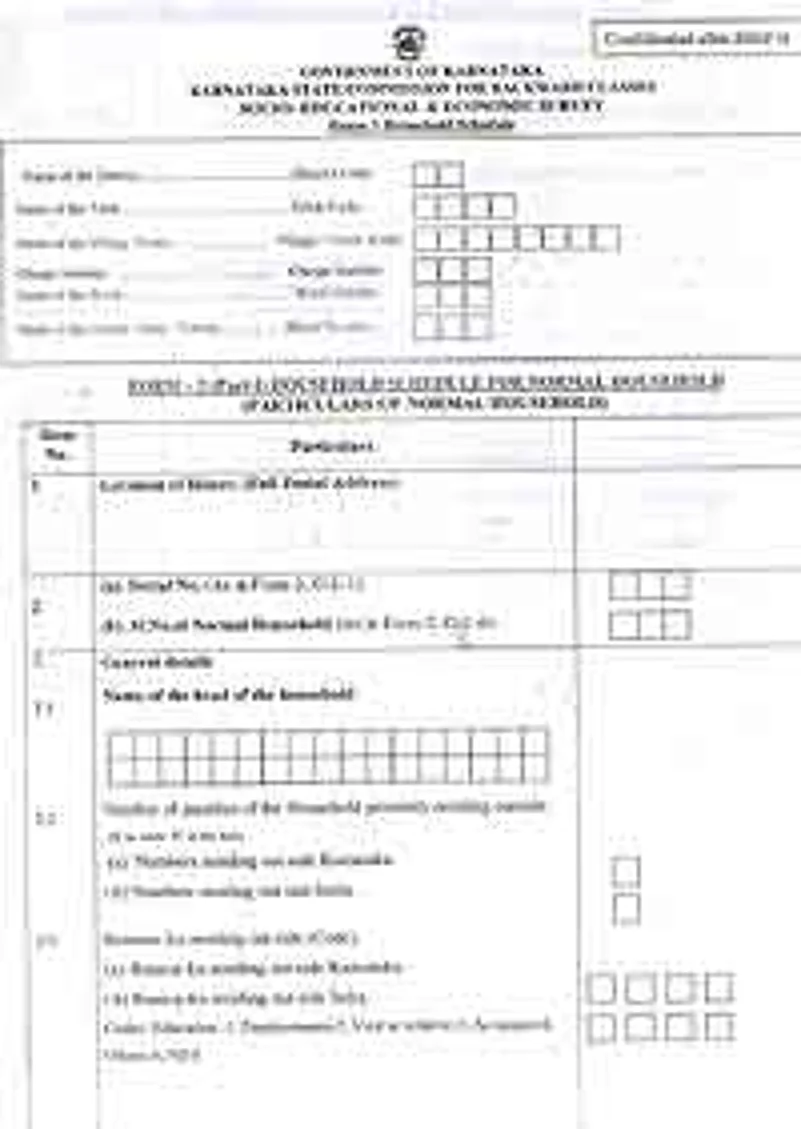
| In detail: The proforma for the survey |
The commission has drawn up 64 indicators for the survey. These include details of whether a person is staying in a pucca, semi-pucca, or kutcha house; income levels; elaborate queries on caste and sub-caste; domestic expenditure; agricultural land holding, whether inherited, granted or purchased; ownership of property by women in the household; income generated by allied agricultural activity; literacy levels; reasons for dropping out of school; type of water used, whether from a well, pond, river or borewell; intra- and inter-state migration patterns within households, and so forth.
According to Dwarakanth, the survey is necessary as there have been enormous social and economic changes in the last few decades. "Each time the backward classes' quota issue has come up, the Supreme Court has asked for data and we have had none to provide. This survey may be the first step in addressing that lacuna. Other states can replicate or improve on Karnataka's experiment," he says. In the 1980s, a not-so-elaborate survey of backwards was conducted by the Venkataswamy Commission, and in the 1970s the Havanur Commission, set up by the then chief minister Devaraj Urs, had relied mostly on the 1931 national caste and religion-based census data.
None of the people Outlook spoke to wanted to come on record, but there is a realisation among major caste groups in the state that this survey can completely alter political equations. "Some castes have unduly benefited as a result of puffed-up statistics. They are worried that this survey will give out their real numbers," says a senior political leader. Whatever the odds, the commission appears determined to go ahead. If all goes well, it hopes to complete its task in two years. But that deadline may be stretched, given the discomfort with the survey.




